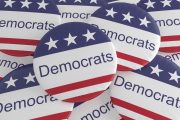
The January 6, 2021, riot at the U.S. Capitol, we are told, was “an attack on democracy,” and Congress’ investigation into those involved in the incident is, ipso facto, an attempt to preserve democracy. However, according to journalist Glenn Greenwald, the committee investigating the riot “is claiming virtually absolute powers that not even the FBI or other law enforcement agencies enjoy” and, further, arguing that these powers are not subject to judicial oversight.
In other words, the committee is going to destroy democracy in order to save it.
Greenwald lays out the basic problem thus:
Under the Constitution and McCarthy-era Supreme Court cases interpreting it, the power to investigate crimes lies with the executive branch, supervised by the judiciary, and not with Congress. Congress does have the power to conduct investigations, but that power is limited to two narrow categories: 1) when doing so is designed to assist in its law-making duties (e.g., directing executives of oil companies to testify when considering new environmental laws) and 2) in order to exert oversight over the executive branch.
What Congress is barred from doing, as two McCarthy-era Supreme Court cases ruled, is exactly what the 1/6 committee is now doing: conducting a separate, parallel criminal investigation in order to uncover political crimes committed by private citizens. Such powers are dangerous precisely because Congress’s investigative powers are not subject to the same safeguards as the FBI and other law enforcement agencies.
Not surprisingly, the committee is already abusing its claimed authority. According to Greenwald, it “has been secretly obtaining private information about American citizens en masse: telephone records, email logs, internet and browsing history, and banking transactions.” Furthermore, it has been doing so in such a way as to prevent its targets from learning about these requests and therefore having an opportunity to challenge them in court.
Perhaps the most egregious example of this — thus far — concerns Taylor Budowich, a former Donald Trump campaign spokesman. On November 23, the committee served Budowich a subpoena requesting numerous documents and testimony from him. Budowich turned over the documents and agreed to testify on December 22. Then, recounts Greenwald, this happened:
On November 23 — the day after it served a subpoena on Budowich himself — it served a subpoena on Budowich’s bank, JPMorgan. The original date for the bank to produce the records was December 7, but JPMorgan — advised by [former Obama-administration attorney general] Loretta Lynch as its legal counsel — bizarrely requested that the deadline be extended until December 24: the day before Christmas, knowing that courts would be closed that day and the next…. Only on December 21 — when Budowich was in Washington for his testimony before the committee — did JPMorgan send him notice at his home that it had received a subpoena and intended to produce the requested documents on December 24: just three days later. As JPMorgan and Lynch knew would happen, Budowich did not see the letter until he arrived home on the evening of December 22: less than forty-eight hours before the bank told him they were going to give up all of his financial records to the committee.
Budowich’s lawyers objected strenuously to the bank’s compliance with the subpoena, but to no avail.
When Budowich sued after the fact to prevent the committee from using the bank documents, both the committee and JPMorgan argued his case was “moot” because the documents were already in the committee’s hands. An Obama-appointed federal judge agreed, and the case is now being appealed.
“At the hearing,” observes Greenwald, “the committee’s lawyers essentially repeated the same argument they advanced in their legal brief: namely, that none of the legal safeguards imposed on the FBI and other law enforcement agencies to guard against abuse of power apply to this Congressional committee, which therefore enjoys virtually absolute power to do what it wants.” In addition, they argued that Congress need not employ its subpoena power in reference to any specific legislation and that, under the doctrine of “sovereign immunity,” Congress cannot be sued without its consent. “That would mean that the 1/6 Committee could literally do whatever it wanted to citizens, and no court would have the right even to review the legality or constitutionality of what it is doing let alone put a stop to it,” warns Greenwald.
Far from being the guardian of democracy, then, the 1/6 Committee is fast becoming the Star Chamber of the 21st century.




